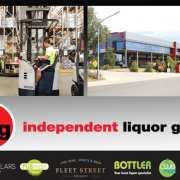DEALING WITH EMPLOYEE THEFT
Employee Theft from a restaurant, hotel, or bar is a term that is used when an employee steals cash, food, ingredients, or supplies while working on the job. In the eyes of the law, employee theft is just theft…the elements of the crime are identical. To commit theft, the employee must intend to permanently deprive their employer of the value of the item stolen.
- Employee theft is an insidious crime because the employer is paying a wage and benefits to the thief on top of paying for the cost of their dishonesty.
- Studies have shown that dishonest employees do a lot of damage because they were trusted, had daily access, and had an insider’s know-how to circumvent the accountability systems.
- This breach of trust makes employee theft more like the crime of embezzlement than shoplifting.
Employee Theft Profile
There is no real physical profile for a dishonest employee. Dishonest employees come in all shapes, sizes, ages, sexes, ethnic backgrounds, religions, levels of education, and economic status. You cannot determine who is likely to steal based on their demographic status alone. However, an employer can make reasonable assessments based on their past and present conduct, integrity, and judgment.
- Some restaurant and bar employees have stolen from every prior employer and will certainly steal from you if hired. It’s a risk-reward decision for them. The reward is the amount they can steal without getting caught.
- Most employee theft suspects I’ve encountered never thought they would be caught. They thought they were too smart for the boss because they got away with it for months or years. This was the reason most often given, and why they felt the risk was worth the reward.
- I’ve found that employers with high-theft losses were not sending a clear message that accountability systems were in place to detect employee theft.
- The deterrence for borderline-dishonest employees includes getting caught, fired, arrested, convicted, jailed, probation, and paying restitution. Help them to realize that a criminal record and bad job reference will have a compounding effect that will follow them for years.
- But because the nature of a cash business, borderline honest employees have to resist ever-present opportunities to steal cash, product, or merchandise…all that some need is a nudge from a supervisor to elevate their desire and motivation to steal from you.
- Some employees would never steal from you under any circumstances. What keeps these employees honest is their moral character, loyalty, respect for the law and their employer, and the desire to be viewed as trustworthy. You have little control over these positive attributes other than recognizing it in the people and hiring more like them.
Accountability is Key to Prevent Employee theft
- You are the architect of your employee theft loss prevention plan.
- You need a clearly defined accountability structure for employees and managers on every shift.
- Your best employees and managers will like the structure and tangible goals to achieve.
- Maintaining high standards allows good employees to excel and be recognized for their accomplishments
- Studies support this by proving that employee theft losses are significantly less in a business with high-accountability, high employee satisfaction, and reduced employee turnover.
Employee Hiring, Training, Supervision
A loss prevention plan to reduce employee theft must include high standards in hiring, training, and supervision. These are like the three-legs of a stool. All three are needed to work in conjunction with each other to create a stable platform.
Hiring
- Hiring is your first line of defence in loss prevention.
- The application stage provides the best opportunity to screen out potentially dishonest employees.
- Let the applicant know that the application form must be filled out complexly and accurately with no blank spaces because you will verify all entries.
- During the hiring phase, a background check is an important opportunity to detect early signs of dishonesty.
- A person’s past conduct, integrity, and judgment often provide the best indication of their future behaviour.
Training
- Procedures that are clearly defined, articulated, and fully implemented will reduce the opportunity, desire, and motivation for employees to steal.
- It provides the structure that employees and managers need to maintain consistency throughout the day.
- Training about the accountability systems is critical to inventory loss control and profit. It is as important as training in sales, or food and beverage preparation.
- The training is not complete until the employee can demonstrate that they understand their responsibilities.
- Dishonest employees and supervisors will buck these accountability systems and shortcut these procedures to avoid detection.
- That’s one way I spot dishonest employees. I look for the employees that are not following accountability policies.
Supervision
- As a business owner and manager, you have an opportunity to build all your future supervisors starting from the day they are hired.
- If you promote from within, you can select the employees that have demonstrated a complete understanding of all accounting systems and have executed them consistently.
- The best supervisors will insist on high standards of accountability across all shifts and locations.
- They help foster the culture of honesty and responsibility for preventing loss.
- They literary keep the employees honest by removing opportunity and increasing the risk of detection of any misdeeds.
- The best supervisors, including owners and managers, have a true interest in the well-being of their employees that help them achieve the desired goals.
- After all, a successful business is a team effort.
- Happy employees are generally honest employees.
Reward Excellence
- Accountability and structure allow supervisors to excel in a well-managed operation. Reward them for their excellence.
- Accountability creates a culture of honesty and integrity that can be found is the best run businesses in the world, so I know it’s worth the effort.
- Promote from within those employees that will maintain your high-standards and are able to implement and follow through on accountability details that you require.
- Don’t always promote the most likable, but less capable employee, as they will undermine your standards.
- Great owners realize that they benefit while those exceptional employees are here and act as role models for the current crew.
- Successful owners are proud to write detailed letters of recommendation for their prized employees as they move on to greater opportunities.
- These same owners are happy to support employees achieve certifications and advanced education that will ultimately cause them to move on.
- Everyone wins if employees know that if they help you achieve your goals today that you will help them achieve their goals tomorrow.
To listen to a podcast co-hosted by Ken Burgin from the Profitable Hospitality podcast in Sydney, Australia on the topic click here>>> https://crimeschool.com/employee-theft-prevention-restaurants-hotels-bars/













